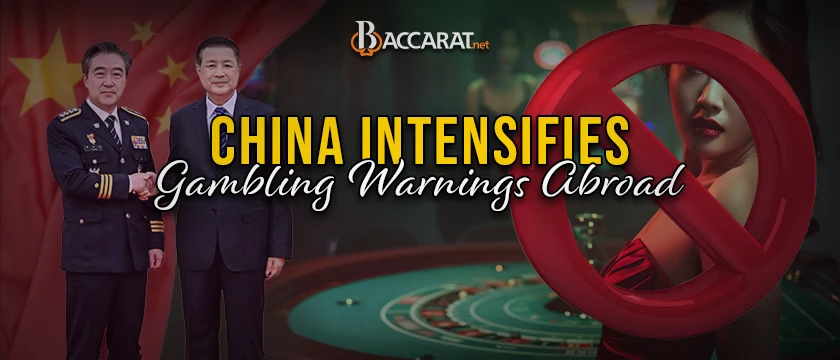China Boosts Efforts to Prevent Citizens Gambling Abroad

China’s Minister of Public Security, Wang Xiaohong, met with the head of the South Korean Police Department, Yoon Hee-keun, last month to discuss bolstering cooperation between the two countries in combating cross border gambling.
People’s Daily reported that the meeting took place in Beijing, where Wang emphasized China’s willingness to work with South Korea to promote cooperation, innovation, and rule of law, aiming for a mutually beneficial outcome.
South Korea is home to 18 casinos, 17 of which are exclusively for foreign passport holders. During the meeting, Wang highlighted the importance of building a robust law enforcement security cooperation mechanism. He outlined goals to strengthen efforts against cross-border gambling, telecommunication network fraud, drug-related crimes, financial crimes, and other illegal activities. Wang also stressed the need to enhance law enforcement capacity and improve cooperation levels to maintain the security and stability of both nations.
Yoon expressed South Korea’s commitment to enhancing law enforcement and security cooperation with China, aiming to improve joint law enforcement capabilities.
The focus on cross border gambling follows a February message from the Chinese Embassy in Korea on its WeChat public website. The message urged Chinese citizens to avoid gambling while in Korea, reminding them that gambling is strictly prohibited under Chinese law, and recent amendments to the Criminal Law have criminalized cross-border gambling to combat illegal activities more effectively. This extends to online gambling, meaning that while abroad, Chinese citizens should refrain from playing games, such as online baccarat.
Warning Also Issued to Chinese Nationals in Singapore
In Singapore, the Chinese Embassy issued a stern reminder to Chinese nationals to “stay away” from overseas gambling, which violates Chinese laws. In a notice on WeChat, the embassy stated that “even if overseas casinos are legally opened, cross-border gambling by Chinese citizens is still considered a suspected violation of the laws of our country.”
In its message, the embassy highlighted the risks of fraud, money laundering, kidnapping, trafficking, detention, and smuggling associated with cross-border gambling. The notice followed a mutual 30-day visa-free entry agreement between China and Singapore, effective since February 9.
In response to a media inquiry, Foreign Ministry spokesperson Lin Jian said:
“China allows no Chinese capital to be invested in overseas casinos, allows no Chinese nationals to engage in operating overseas casinos, and allows no overseas casinos to entice Chinese nationals into gambling.”
Despite these warnings, Genting Singapore, which operates one of Singapore’s two integrated resorts alongside Las Vegas Sands, did not see a decline in share prices. However, the warning does not impact Chinese citizens gambling in Macao, a Chinese territory exempt from these restrictions.
Nonetheless, authorities have been cracking down on illicit cross-border gaming activities in Macao, as evidenced by the arrest of Suncity boss Alvin Chau.
Repatriations Carried Out from Philippines
At the start of May, Chinese and Philippine law enforcement agencies collaborated to repatriate over 160 Chinese citizens involved in offshore gambling in the Philippines.
The Chinese Embassy in the Philippines has pledged to continue strengthening practical law enforcement cooperation with the Philippines. The aim is to resolve recurring issues related to the offshore gambling industry as quickly as possible. Earlier this year, on February 22, more than 40 Chinese nationals involved in offshore gambling in the Philippines were repatriated through the joint efforts of Chinese and Philippine law enforcement agencies following a similar action last December.
Since 2023, multiple joint law enforcement operations have been conducted by the Philippine Presidential Anti-Organized Crime Commission and other agencies, resulting in numerous arrests of suspects engaged in illegal offshore gambling activities. At the request of the Philippine side and with active assistance from the Chinese Embassy, a number of repatriations have now been completed.
Public concern has risen in China regarding the frequent occurrence and significant losses from telecom fraud cases related to false investment and financial management. To combat these issues, China and Southeast Asian countries have committed to protecting the public from gambling fraud and related crimes through joint special operations.
Additionally, police forces from China, Thailand, Myanmar and Laos have launched a special joint operation to combat telecommunications fraud and online gambling crimes.
The overall message from China to its citizens certainly seems to be that the authorities will do all in their power to prevent them from becoming involved in the gambling industry.



